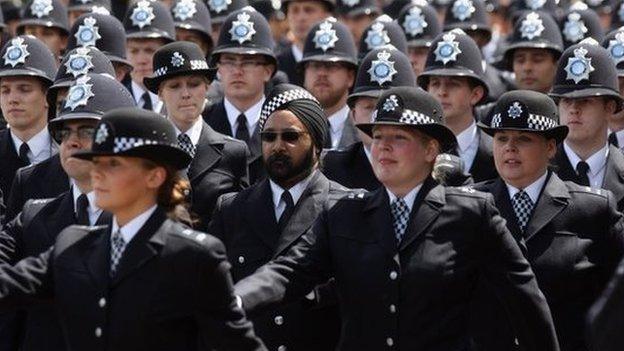Police ethnic diversity record 'shocking', MPs warn
- Published
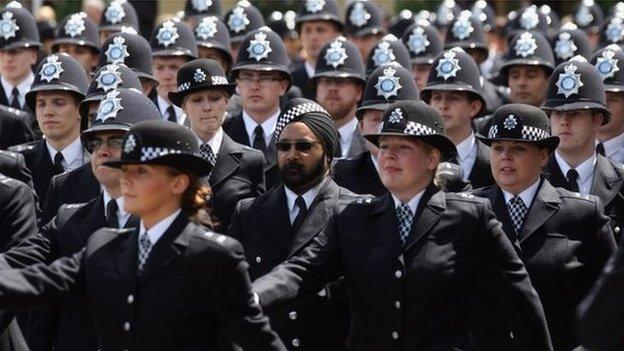
Radical action is needed to tackle the "shocking" under-representation of black and minority ethnic (BME) people in police forces in England and Wales, the Home Affairs committee has warned.
No force in England and Wales had a BME representation which matched its local demographic, the group of MPs said.
They said a "diversity champion" should be appointed to hold forces to account.
The College of Policing said it was tackling the problem and had issued "bespoke" action plans to each force.
Home Secretary Theresa May said diversity in policing was "not an optional extra", and forces must do more.
How does your force rank for ethnic diversity?
How do you change the Met's face?
The Commons committee's report on policy diversity cited figures showing that last year, 5.5% of officers were from a BME background, compared to 14% of the population.
Representation was "even lower" in the senior ranks, the report said.
Two out of 201 chief officers self-identified as BME, while 11 forces had no BME officers above the rank of chief inspector, according to the previously published data.

Police diversity record
Four police forces - Cheshire, North Yorkshire, Dyfed-Powys and Durham - employ no black or black British police officers
11 forces have no BME officers above the rank of inspector
Only two officers at the rank of police chief self-identify as BME
In 1999, 2% of police officers in England and Wales were from a BME background, compared to 6.5% of the population
In 2015, 5.5% of police officers were from a BME background, compared to 14% of the population
In the Metropolitan Police Service, BME police officer representation is 12.4%, compared to 40.2% of the population
Source: House of Commons Home Affairs Committee police diversity report

Labour MP Keith Vaz, chairman of the committee, said the lack of BME representation in police forces was "stark and shocking".
"No-one looking at this picture can believe it promotes effective policing," he said.
He added: "If we compare the figures from 1999 and 2015, representation of the population in our police forces has progressed at a snail's pace.
"This was unacceptable in 1999 and it's totally unacceptable now. It is as if the Macpherson report was never written."
Diversity champion
The Macpherson report on the Stephen Lawrence case, published in 1999, found evidence of "institutional racism" in Britain's largest force, the Metropolitan Police.
Despite good intentions from senior officers, police forces had "consistently failed to improve" and must take "radical action", Mr Vaz said.
The committee called for the appointment of a new diversity champion with "the authority to hold all police forces to account for achieving proper community representation throughout the ranks".
The diversity champion would be able to collect and publish data, promote best practice, and provide practical advice, the report said.
It also suggested steps including compulsory training on diversity issues for selection and promotion panel members, and introducing coaching and mentoring for BME officers.
'Trust and confidence'
Superintendent Manjit Thandi of the College of Policing said: "Police need to represent the communities they serve, and right now that is not happening enough.
"We are tackling this and have already delivered a bespoke evaluation and action plan to all 43 police forces to improve the recruitment, development, progression and retention of BME officers and staff."
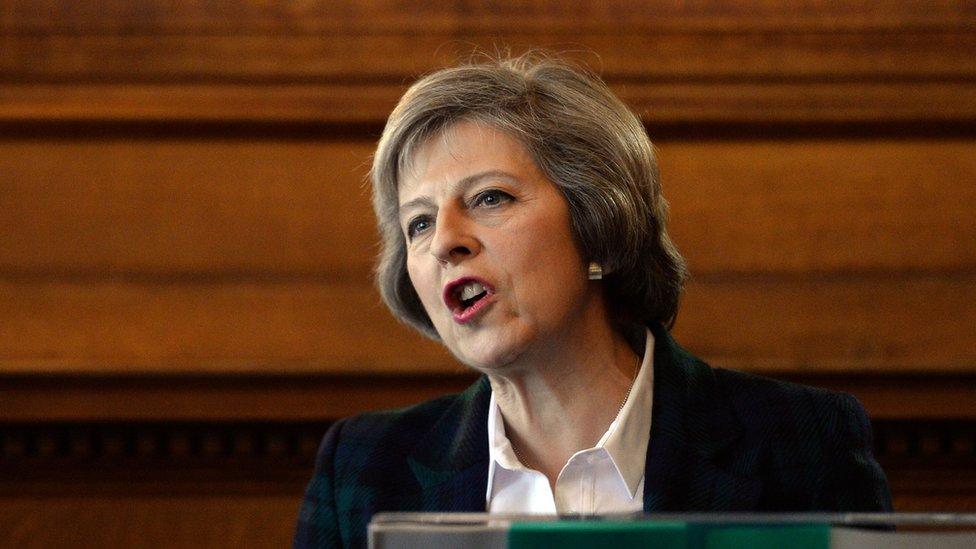
Home Secretary Theresa May said the police must reflect the diversity of communities it served
Robin Wilkinson, of the Met Police, said the force had done "more than any force to improve representation from BME communities".
Nearly 30% of new recruits this year would be from BME backgrounds, and the Met predicted it would have 4,000 BME officers in total by this summer, he said.
There had been an increase of 75% over 10 years, and BME officers were represented at every rank up to and including Assistant Commissioner, he added.
Home Secretary Theresa May - who attacked the lack of BME officers in the police service last year - said: "I have been clear that diversity is not an optional extra in policing.
"It goes right to the heart of this country's historic principle of policing by consent. For the public have trust and confidence in the police, and the police must reflect the communities they serve."
The police had made improvements but local police leaders, led by the College of Policing, must "rise to the challenge of reform", she said.
- Published22 October 2015
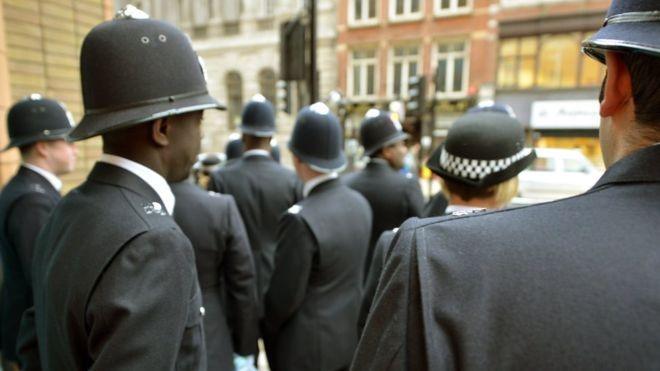
- Published8 June 2015
- Published22 October 2015
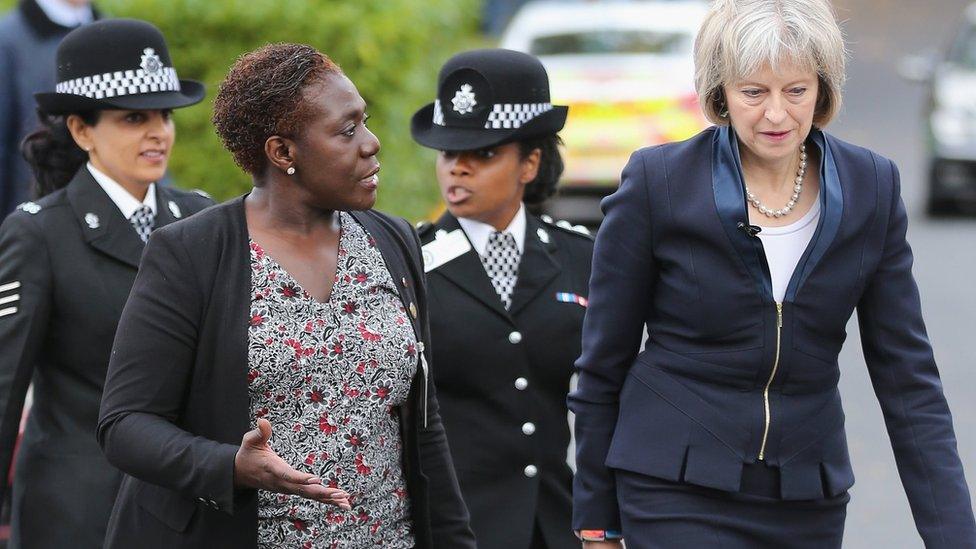
- Published30 June 2015
